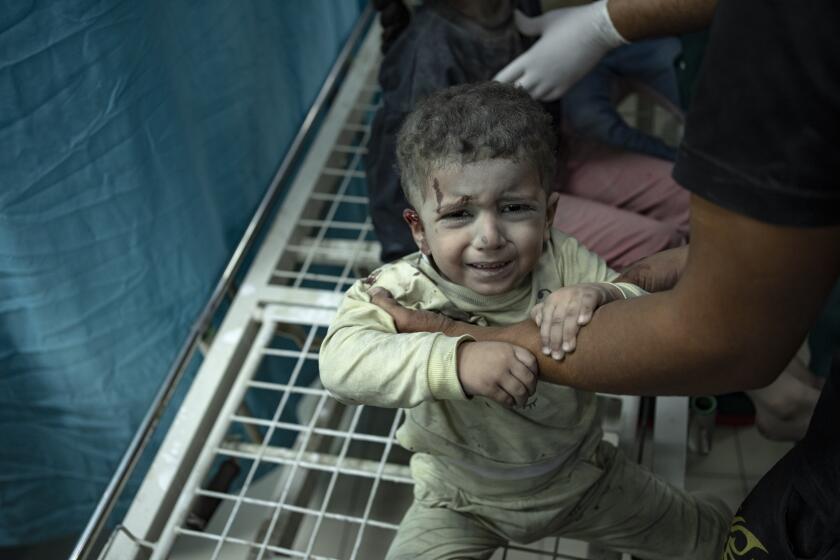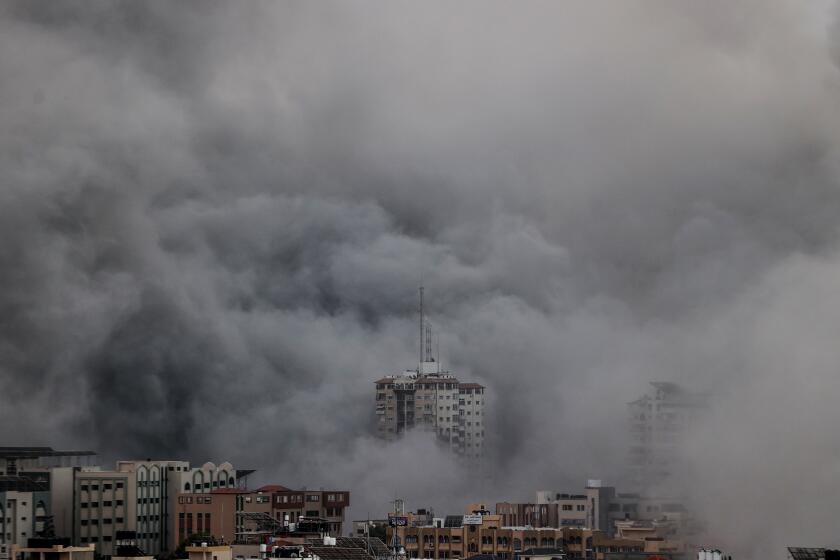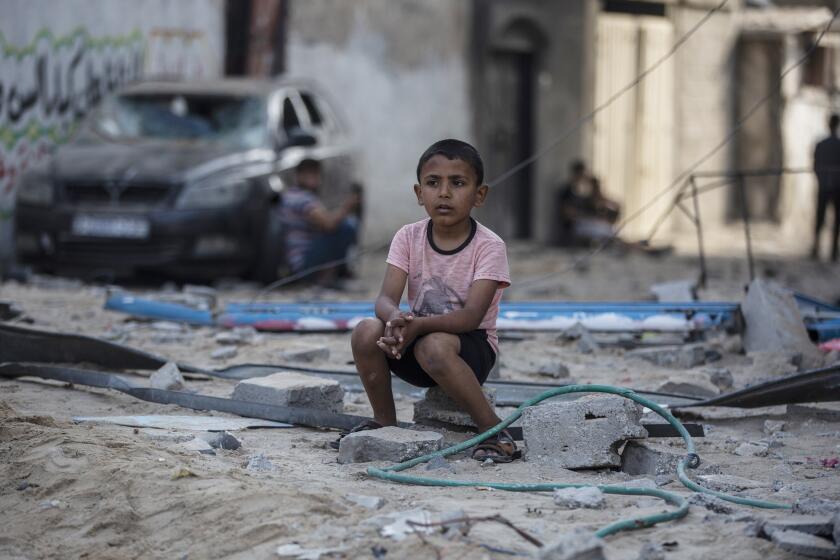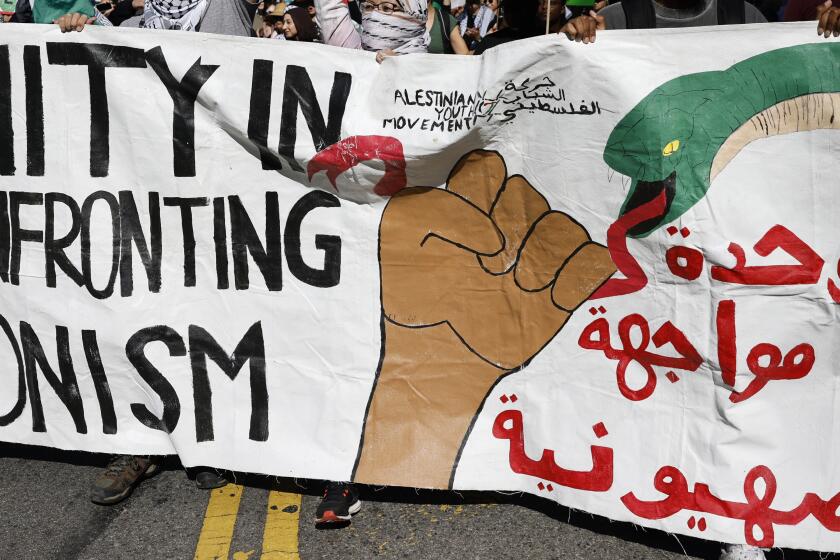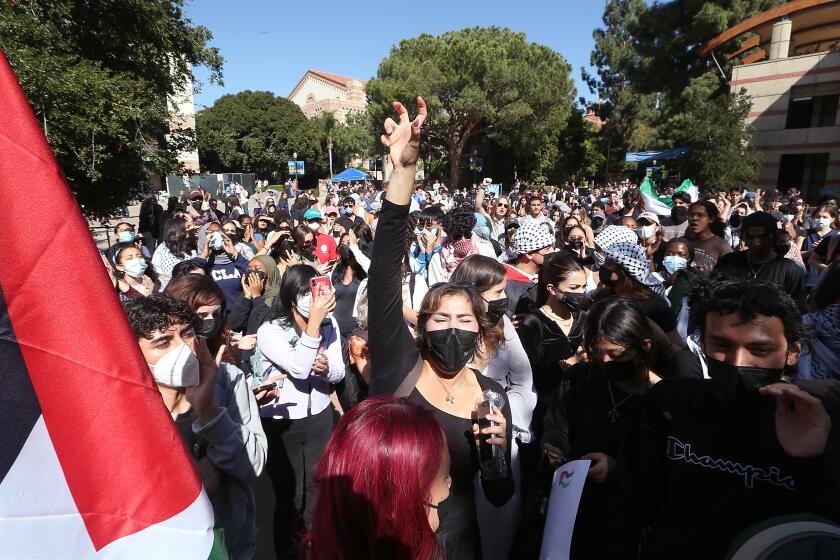Palestinian and Israeli children are endangered by ‘us vs. them’ narratives
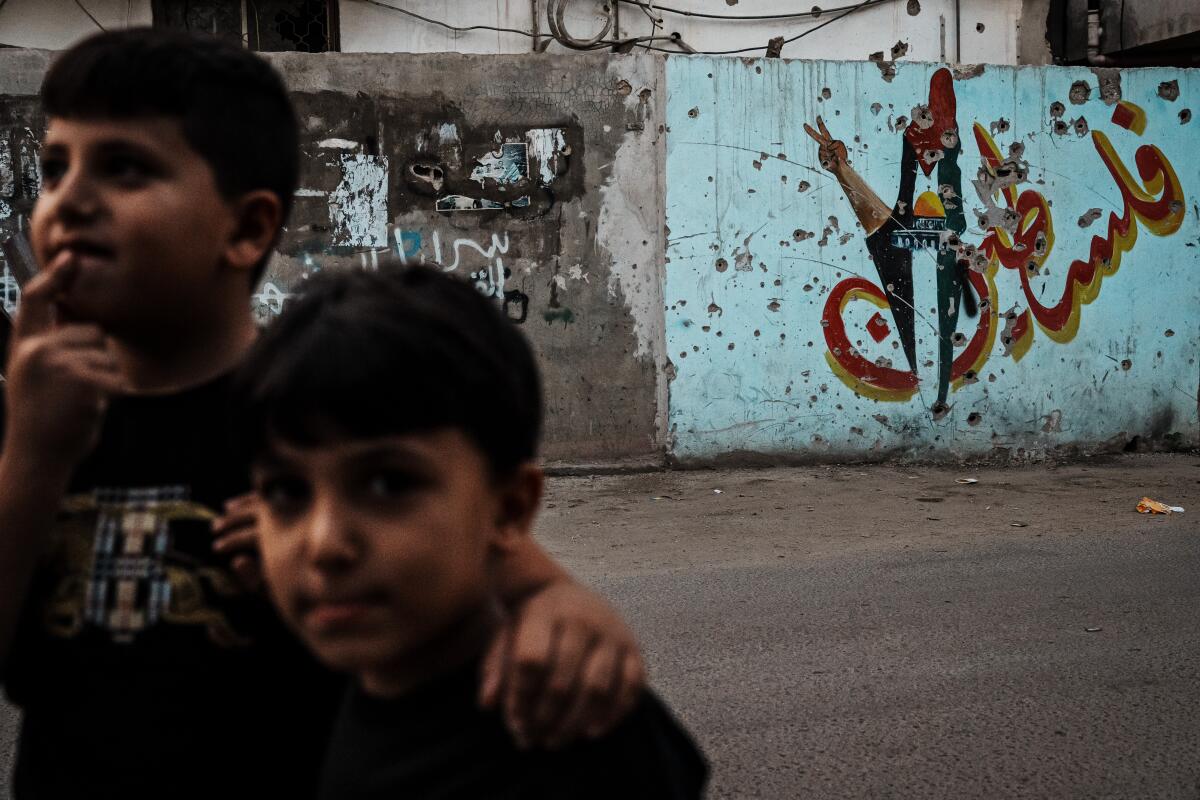
- Share via
“What do you want to do when you grow up?” I asked Muhammad, an 8-year-old boy.
“I want to kill Israeli soldiers!” he replied proudly.
This was in 1998, when I was teaching English in Shatila, a Palestinian refugee camp in Beirut. I’d come to Beirut to study abroad and explore my Arab roots, but as an American who’d never left the U.S., I was unprepared for the deep anger toward Israel that I encountered.
I’m the child of a Holocaust survivor. I know the trauma inflicted on Gaza will last for generations
As a rabbi, I teach the value of every human life. That’s why I and other rabbis in the Jewish peace movement are demanding an immediate cease-fire in Gaza.
My young students provided history lessons I’d never gotten. They told me of the notorious Shatila massacre in the 1980s, facilitated by Israeli soldiers. They told me about the Nakba, when many of their grandparents had been displaced and rendered stateless during the 1948 Arab-Israeli War.
Although they’d lived their whole lives inside Shatila, my students knew the names of the Palestinian villages their families came from. Some of their grandparents still kept the keys to houses that had been destroyed.
Gaza’s techies were dreamers and builders. After Israel’s bombs, their stories shatter my heart
The Palestinian coders and techies I worked with built bridges to Silicon Valley. Amid Israel’s bombing, their vision of a new future for Gaza is crushed.
As much as I learned from them, I didn’t have the courage then to teach these children what I knew: that Israel had been created because of the murder of 6 million Jews in the Holocaust, and that antisemitism is as real and frightening as discrimination against Arabs and Muslims. I didn’t tell them that my best friend and my boyfriend were both Jewish.
Instead, I listened. I heard anger, fear, sadness and, yes — hatred. Back home, I was studying to be a history teacher. I wondered how these young Palestinians could understand their current situation without hearing from Israeli kids who knew the other side of their shared history, and who might simultaneously be forming the ambition to kill Palestinian militants. There is no mention of the Holocaust in Palestinian Authority textbooks, and the Nakba is called the War of Independence in Israeli textbooks.
My experience in Shatila led me to the central questions of my career as an educator: How can we tell young people the hard truths about history without perpetuating conflict? How do we resolve the different versions of the past that groups in conflict promote? How can we give kids a sense of pride in their identity without making them think other groups are inferior?
Israel struck the Jabaliya refugee camp in the Gaza Strip Tuesday. Palestinians have experienced a long cycle of displacement within and beyond Israel’s borders.
These questions have followed me throughout my career, and for me the solution remains the same. We have to teach hard histories in all their complexity. We have to create classrooms where students are free to question political orthodoxies. And we have to support the teachers who do this challenging and essential work.
Research shows that conflict thrives on simplistic narratives, when history is rarely that clear-cut. My own studies show that complicating easy narratives with messy truths can break down the misleading moral certainties people use to justify violence.
College officials may fear being perceived as taking sides in the Israel-Hamas conflict, but it is wrong to confuse condemning antisemitism with ignoring the plight of the Palestinians.
While traditional textbooks paint a veneer of false agreement over vigorous historical debate, an approach that includes analyzing primary source documents teaches students to weigh evidence. “The Jewish State,” by Theodor Herzl, the Balfour Declaration, the Palestine Mandate, U.N. General Assembly Resolution 194, speeches by Golda Meir and Yasser Arafat, the Oslo accords, and firsthand accounts from places such as Auschwitz and Shatila are just a few such examples.
A technique known as applied theater provides another helpful approach to working with hard histories. The Israeli-Palestinian organization Combatants for Peace has led role-playing activities while facilitating encounters in which the two groups can hear each other’s stories. Similarly, scholars have held workshops in which Palestinian and Israeli teachers work together to construct historical narratives and have studied Palestinian-Jewish integrated educational contexts to understand their possibilities and limitations.
These explorations allow people to give nuance to “us vs. them” narratives. Muhammad was angry at Israeli soldiers, but not particularly at Lebanese authorities who kept refugees penned at Shatila, or at Palestinian politicians who failed their people. Israeli survivors of the Oct. 7 massacre will likely blame Hamas but may not be aware of how the Israeli campaign against the comparatively moderate Palestine Liberation Organization empowered Hamas.
No college student should be made to feel unsafe on campus. Most genuinely care about all civilians affected by the terror attack on Israel and the humanitarian crisis in Gaza.
Exploring history in these ways is risky. Adults have to be ready for kids to challenge everything they hold dear. Educational change moves slowly and is difficult to carry out during an ongoing conflict. But if we wait for the conflict to end before trying to make such changes, the delay could be interminable.
While we wait, Israeli and Palestinian children are forming memories of carnage, which will be reinforced by the one-sided narratives they hear in school, and the cycle of violence continues.
Innovative history education is necessary, but on its own is not sufficient to interrupt that cycle. Palestinian and Israeli kids need freedom, security and prosperity, and they deserve a full account of why this has been so hard to achieve. Lasting peace relies on safety, economic stability and just societies, but it can only be maintained with truth and understanding, which starts with education.
Rosalie Metro is an anthropologist of education and an associate teaching professor in the College of Education and Human Development at the University of Missouri-Columbia.
More to Read
A cure for the common opinion
Get thought-provoking perspectives with our weekly newsletter.
You may occasionally receive promotional content from the Los Angeles Times.
